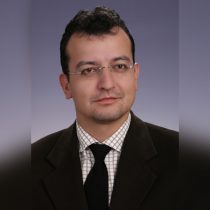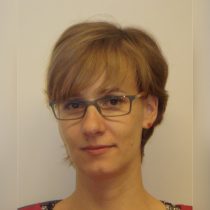University of Debrecen
area of expertise and healthcare provider’s contribution to care for patients within the metabERN network
University of Debrecen is one of the four medical universities of Hungary. In addition to the general and very specialized care of patients we have an expert diagnostic laboratory that performs a wide range of genetic testing including whole exome sequencing. Although the newborn screening is centralized into two other medical universities in the country we treat metabolic patients as well, both children and adults. As Eastern Europe has much less well organized healthcare system compared to Western Europe, especially in the field of rare diseases, we can offer our diagnostic and care services to the patients located in this part of Europe. We are certain that the visibility of our activities will be increased and will attract more suspicious cases and will help to improve the diagnosis of the diseases.
In the diagnostic field University of Debrecen has been contributing to biochemical and genetic diagnostics of rare diseases. Our main focus within the MetabERN is Smith‐Lemli‐Opitz syndrome (SLOS). The Clinical Genetic Division within the HCP is the sole laboratory in Hungary that provides biochemical and genetic testing services in case od SLOS. All samples suspicious for SLOS are sent to Debrecen and tested by biochemical and/or genetic analysis. The patients live throughout the country. Some of them are followed up regularly in the HCP, while others are followed by clinicians belonging to different HCPs throughout the country. In these latter cases consultations regularly take place.
In addition to organizing both clinical care and laboratory diagnosis, we have set up a clinical study to analyze treatment options. In an ongoing study we are investigating the therapeutic effect of vitamin E in SLOS patiens. This study involves seven patients form the ten alive from the entire country.
We are active in the scientific efforts of SLOS research as well. These activities date back to 2010, when we first diagnosed SLOS in Hungary (Szabo GP et al, Eur J Pediatr, 2010). Since then we analyzed the mutational spectrum of the disease (Balogh et al, Mol Syndromol, 2012) and published several other papers. We also set up international collaboration concering the SLO. In this work, we collaborate with the Vanderbilt University’s SLOS research group (Korade et al, J Med Chem, 2016).
In addition to the SLOS, University of Debrecen is taking care of a number of other metabolic patients as well. These are Gaucher, Fabry, clinically homozygous familial hypercholesterolemia, severe heterozygous familial hypercholesterolemia, Pompe, NPC, Leigh syndrome patients.
Specific treatments and interventions provided by the HCP
University of Debrecen provides the following services: genetic screening, acute care, ambulatory services, diagnostic services, interventional therapeutic services.
We are the only provider of genetic testing service for all suspected patients and their family members in Hungary in the case of many metabolic disorders, including SLOS. These testing processes can be divided into two fields: postnatal diagnostic service (including cascade screening) and prenatal diagnosis. Prenatal genetic testing are routinely performed. The genetic testing portfolio covers all possible mutation types and involve traditional and next generation sequencing as well as copy number variation analysis. In clinically suspicious cases we are the only laboratory in Hungary that performs biochemical genetic assay to measure 7DHC. The diagnostic laboratory is led by a European Board of Medical Genetics registered Clinical Laboratory Geneticist.
Clinical genetic diagnosis as well as care and counselling are provided by the clinical geneticists and internists of the HCP in all metabolic disorders, including SLO. That service is usually performed under ambulatory settings, however, it is possible also to provide inpatient care as well. As the HCP is a tertiary care center, all possible acute care facilities are available. Surgical interventions are available in case of hypospadias, cleft palate, pyloric stenosis, strabismus etc. Dental care is available when needed.
Our main clinical research field is SLOS. As it has no curative therapy, standard care is provided by the HCP. In addition, a novel treatment option, i.e. vitamin E supplementation is being investigated in a clinical study frame.
Nagyerdei körút 98, 4032 Debrecen, Hungary



